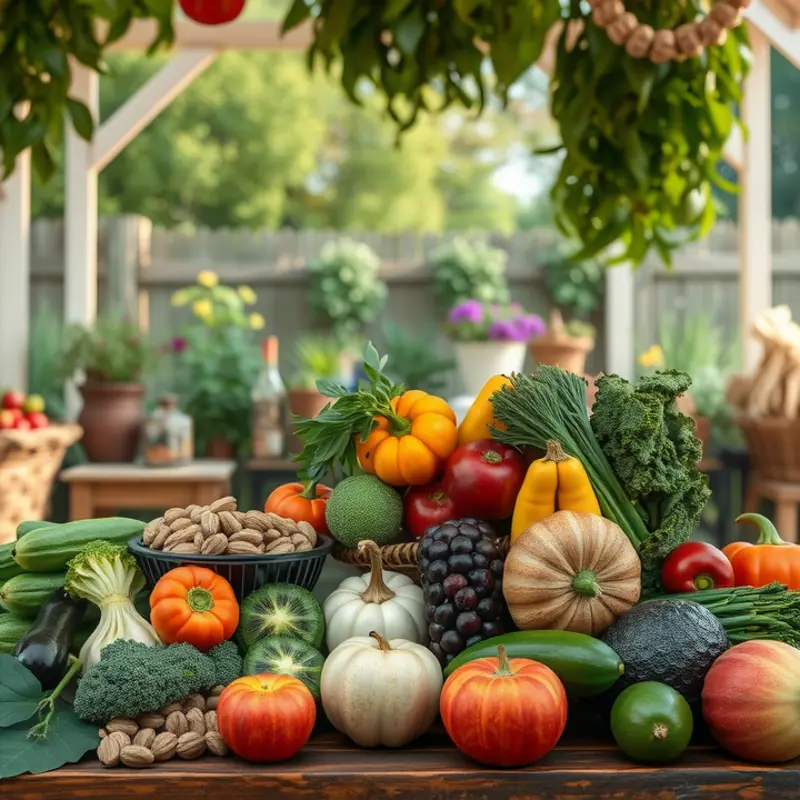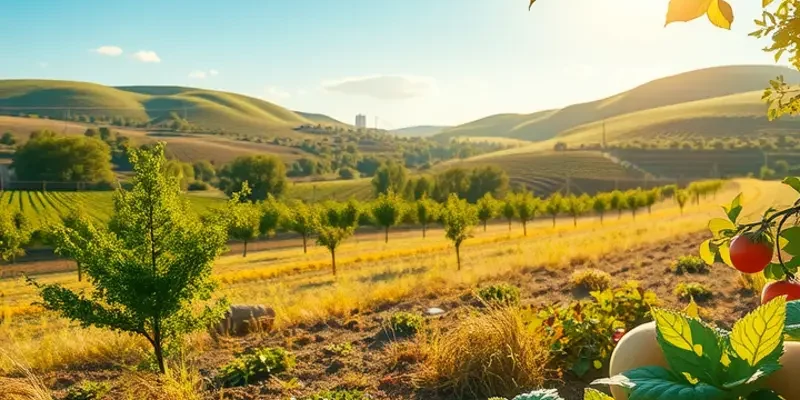With the growing concern over environmental issues, the choices we make about food and snacking can significantly impact our planet’s health. Sustainable snacking isn’t just about choosing organic or local ingredients; it’s about fostering habits that promote environmental stewardship. This guide aims to equip environmentally-conscious individuals with practical tips to cultivate sustainable snacking habits that benefit both personal health and the planet.
Mindful Choices: Understanding Sustainable Ingredients

Mindful snacking begins with an acute awareness of the ingredients that make up our favorite bites. The significance of choosing sustainable ingredients cannot be overstated. Every selection we make impacts not just our health but also the planet. This chapter focuses on understanding the importance of ingredient sourcing and recognizing sustainable options.
A cornerstone of sustainable eating is consuming seasonal fruits and vegetables. Seasonal produce is not only fresher and tastier but also requires fewer resources to reach your plate. For example, strawberries transported out of season contribute significantly to carbon emissions. On the other hand, choosing local and in-season produce reduces transportation, thus minimizing your carbon footprint. A visit to a local farmer’s market often yields a bounty of fresh, seasonal products, offering a delightful exploration of what’s naturally thriving in your region.
Local sourcing also plays a vital role in sustainability. By purchasing local products, you support regional farming practices that often adhere to more eco-friendly methods. This practice boosts local economies and reduces the environmental costs of long-distance transportation. When you face a choice between imported and locally-sourced options, understanding this trade-off is crucial.
The debate between organic and conventional produce brings another dimension to our understanding of sustainable ingredients. Organic farming utilizes natural substances and processes, which can support biodiversity and soil health. Conventional farming often relies on synthetic fertilizers and pesticides, posing environmental challenges. Organic produce tends to be more expensive, but investing in these options, when possible, supports more sustainable farming practices.
Becoming adept at making informed choices requires recognizing labels and certifications indicating sustainability. Certifications like fair trade and organic provide assurances of ethical and environmentally sound practices, helping guide your purchasing decisions.
To learn more about reducing waste and practicing sustainability, consider exploring approaches to eco-smart kitchen storage. Effective storage extends the life of your ingredients, ensuring that you make the most of every sustainable purchase.
As consumers, our conscious decisions to prioritize sustainability play a part in driving demand for eco-friendly products. By choosing sustainably sourced ingredients, not only are we nourishing our bodies, but we are also paving the way for a healthier planet. Snacking mindfully means understanding how our daily habits impact the environment and striving to make choices that reflect our environmental values.
Creative Snacking: Eco-Friendly Recipes and Tips

Transform your snack time into a celebration of sustainability with creative recipes and eco-friendly practices. Snack lovers can reduce waste and embrace environmental consciousness by incorporating leftovers and seasonal produce, as well as choosing environmentally friendly packaging.
Begin with toast, often synonymous with busy breakfasts, but have you considered its potential as a snack? Start with yesterday’s bread to avoid waste and let your inner chef create delicious open-faced, eco-friendly delights. Add thin slices of ripe tomatoes, harvested at their peak for maximum flavor, or mash an avocado for a creamy texture and sprinkle seeds like sunflower or chia for that extra crunch.
For a zero-waste veggie snack, look to carrot tops, beet greens, or leek greens, which often end up in the trash. These greens can be repurposed into a delightful pesto. Blend them with nuts or seeds, a touch of garlic, olive oil, and lemon juice. This versatile paste pairs beautifully spread on crackers or as a dip for sliced vegetables.
Fruit that’s overripe or slightly bruised can find its second life in smoothies or as a base for fruit leather. Blend the fruit with a hint of your choice of sweetener and spread it thinly on a lined baking tray. Let it dry out in a low oven until it sets. These homemade fruit rolls are perfect for on-the-go, plus you’re minimizing food wastage.
Rethink popping popcorn by embracing whole-grain kernels instead of microwave bags, which often include non-recyclable materials. Using a stovetop method, pop the kernels in a pot with some oil, add your favorite herbs or nutritional yeast afterwards, transforming them into a savory, eco-conscious treat.
Don’t disregard the convenience of jars. Opt for brands that use glass over plastic when selecting snacks like jams or condiments, and repurpose these sturdy containers for snacks on-the-go. For more insights on using containers wisely, explore eco-smart kitchen storage.
Incorporate seasonal produce into homemade chips by thinly slicing root vegetables like sweet potatoes or parsnips. Lay them flat on a baking sheet, season to taste, and bake until crispy. These can substitute store-bought chips that often come in single-use bags.
Moreover, combining grains, legumes, and spices with leftover vegetables allows for a satisfying take on energy bars. Mix everything, press into a dish, refrigerate, and slice. These bars are filling and adaptable, ensuring nothing goes to waste.
It’s not just about minimizing waste—it’s a call to enjoy your snacks creatively while fostering sustainable habits. Feeding your cravings with thoughtfulness enhances the experience and keeps our planet in mind, fostering a greener tomorrow.
Final words
Adopting sustainable snacking habits is an essential step towards a healthier lifestyle and a cleaner environment. By making mindful ingredient choices and embracing creative, eco-friendly snack recipes, individuals can contribute positively to the planet. This journey does not require perfection; it instead celebrates progress, encouraging all to start small and gradually incorporate more sustainable practices. Your food choices can spark change, and every snack counts in building a healthier future for both you and the Earth.








